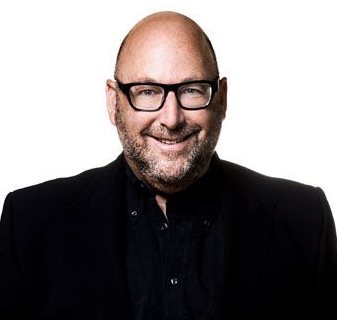
Top stories






More news


Marketing & Media
Ads are coming to AI. Does that really have to be such a bad thing?














Add load shedding, crime and the fact that the Corona Virus is around the corner, and one must wonder why more of us aren’t medicated. I imagine it’s partly because we can no longer afford it.
Yet here is something to consider: In 2020, even if we reside in South Africa, our life expectancy on average is greater than it has ever been. Less of us will die in wars than pretty much ever before, and even with Covid-19 waiting excitedly in the wings, we are healthier and better fed than we have ever been. More of us can read, and despite how we behave on Twitter, we are in reality getting smarter.
So, why is that we are steadfastly also becoming more miserable, more depressed. Why would it be that around the world, more of our children and friends and colleagues are choosing to take their lives?
I often think of my grandparents who came to South Africa as refugees. Whereas they were by no means a laugh-a-minute kind of people, they were positive, driven, goal-oriented and had little time to spend on the small things. They had lost their families during the Second World War and were focussed on building and securing their new ones. This meant that there was clarity on their priorities. In essence, they made choices as what to worry about and what to let go.
According to social media strategist Gary Vaynerchuk, “ Optimism is a strategy.” This means that it requires planning, implementation and that it needs to be prioritised. Positivity is not something that many of us are born with, it is not something that many of us are raised with, and with the amount of negativity that assaults us daily, it is not something that many of us find it easy to maintain. It is infinitely easier to get swept up by the negativity of the country, of the world and by our own circumstances than it is to focus on priorities and perspective.
As I write this column, Australians are clearing the shelves of toilet paper. The spectre of Corona is so great, that anxiety around being in isolation has captured the imagination of the country. This is despite the fact that a total of 39 people have been diagnosed with the virus. In the entire country. The panic buying toilet paper is what happens when we abandon any hope of positivity, when we lose perspective and when we let the demons win. There is an undoubtedly greater chance of being killed in a two-ply stampede than of dying of Covid19.
South Africans understand what it means to choose to be positive. The #ImStaying movement that swept the country last year is the embodiment of exactly this. But it is not enough to rely on a website to do it for us. Like my grandparents, each of us needs to choose what our mission is and what our priorities are. Once we have done so, we need to actively discard the things that are not worth worrying about so that we stick to our strategy of optimism. And only if we choose for toilet paper to be on that list, should we go shopping.
